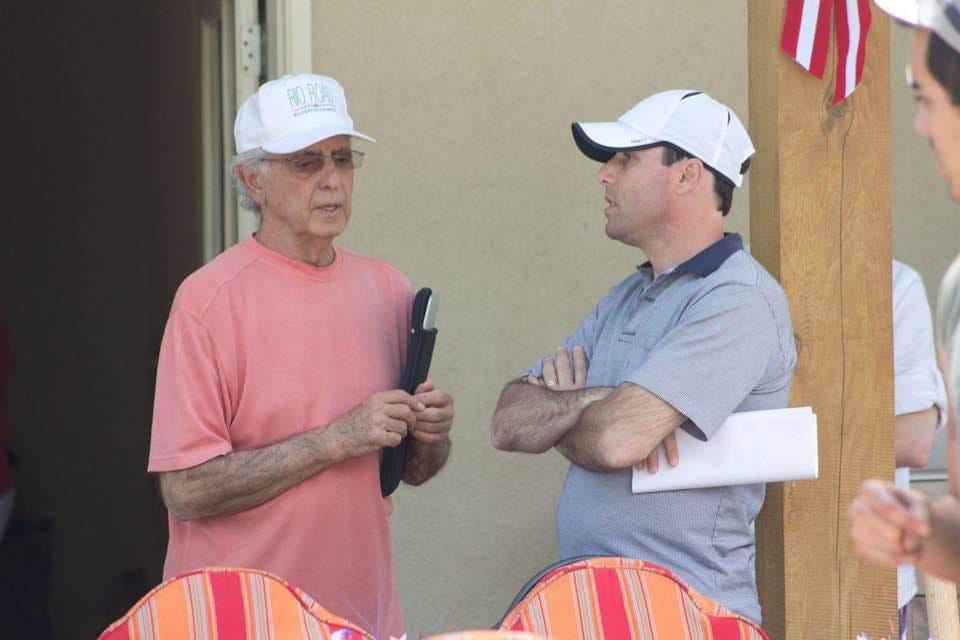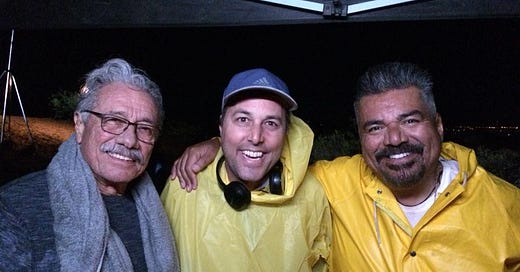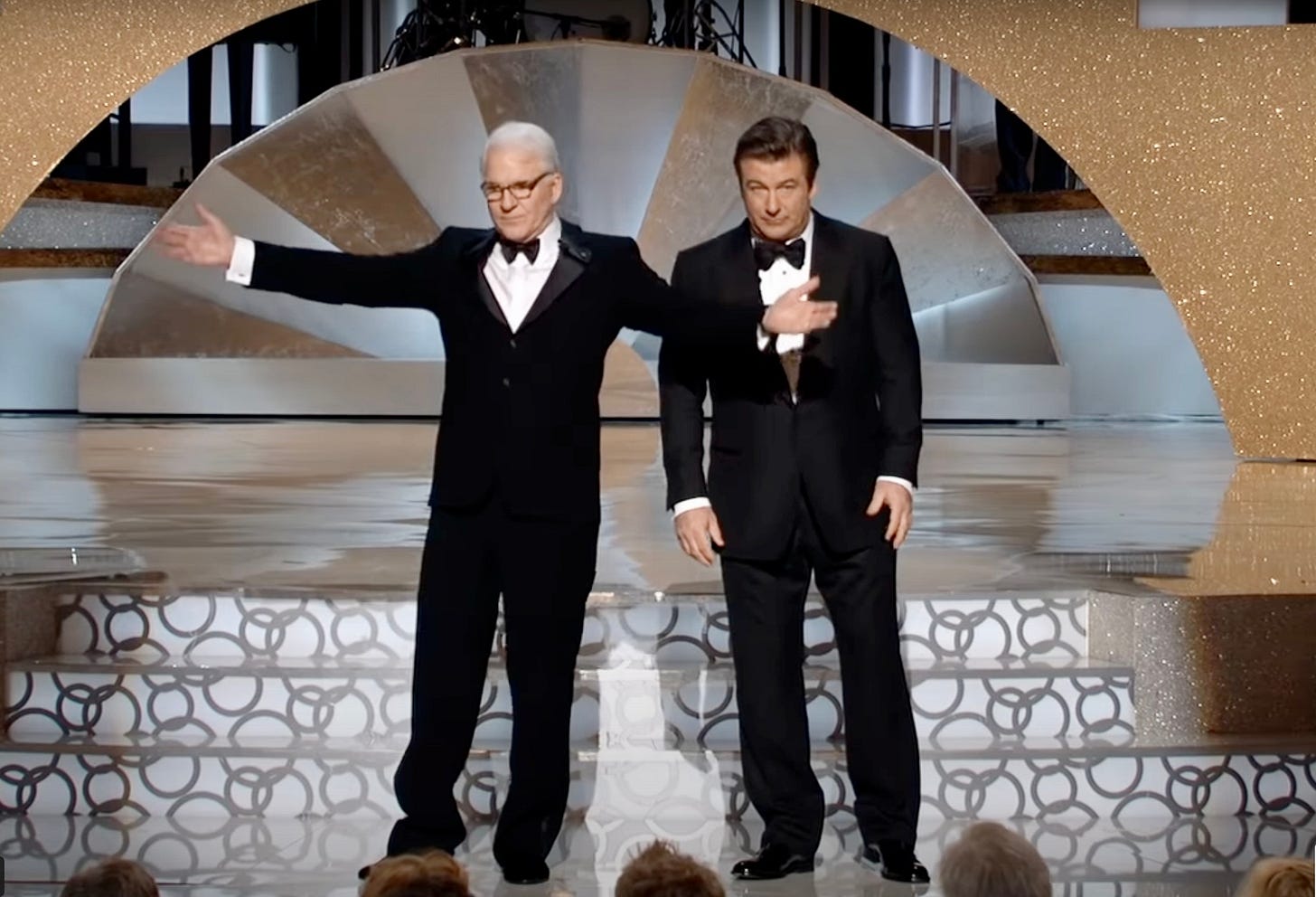Jews and Hollywood
How a People Shut Out of American Business Created an Industry That Changed History
By Ross Kagan Marks

At the 2010 Academy Awards, co-host Steve Martin began a joke about Jews in Hollywood like this:
“In Inglorious Bastards, Christoph Waltz played a Nazi obsessed with finding Jews. Well, Christoph…”
Martin paused, then he spread his arms wide open in reference to the fully seated audience in the Kodak Theatre. He waited for the first big laugh to finish, then parlayed it into another by exclaiming “the motherlode!”
I am a Jew who has lived in Hollywood and worked there making movies. And if I was in that audience, I would have roared too.
It is an indisputable fact that Jews have an enormous presence and influence in Hollywood. In my view, this is a great thing. But it was not always a fait accompli. The success that Jews have earned in the entertainment industry, which was born more than a century ago — started more or less by default.
During those early years in Los Angeles, many Jews from Eastern Europe had migrated to the United States and were drawn to opportunities in the nascent film business — because they’d been shut out of so many other professions. Pedigreed law firms had banned Jews. Elite hospitals wouldn’t hire Jewish doctors. And so on.
Of course, these exclusions were nothing new; more like part and parcel of Jewish history. And just as in the past — when there was a dire lack of opportunity to make a living — Jews just created it. Invented it. “No one will hire me, so I’ll just hire myself.” Jews began building Hollywood because they needed to eat.
Actually, even the elite theaters of the early 20th century had banned Jews — so instead they began dominating Vaudeville. That opened up a wellspring of opportunity; a pipeline of talent for the fast-growing film business.
In the 1920s and 1930s, first generation Jewish immigrants like Louis B. Mayer, Samuel Goldwyn, Darryl Zanuck, Adolph Zukor and the Warner Brothers founded what came to be known as “The Big Five” studios (and the founders were referred to as “The Moguls”).
This was the front end of the Golden Age of Hollywood, and it was dominated by Warner Bros., Metro-Goldwyn-Mayer, RKO, Paramount Pictures and 20th Century Fox. On top of that, Carl Laemmle founded Universal Studios and Harry Cohn created Columbia Pictures.
Ever since, Jewish filmmakers and producers have been making movies and passing the baton. The earliest pioneers were directors like Ernst Lubitsch and Billy Wilder. A century later, with directors being almost as well known as the stars, we readily recognize names like Spielberg, Reiner, Ephron, Abrams, Coen, Stone, Mamet, Levinson… it’s a rich history. And throughout it, Jewish filmmakers introduced new genres, techniques, and storytelling approaches. They showed a willingness to take risks and address important social and political issues through their films.
The combination of Jewish executives working with Jewish writers and directors spawned some of the truly epic features in the history of film, among them: Gentleman’s Agreement, On the Waterfront, Platoon, Annie Hall, Some Like It Hot, The Color Purple, The Graduate, Ben Hur, A Beautiful Mind, Schindler’s List — and for my money, anything made by Neil Simon.

Moreover, in front of the camera, Jewish actors and actresses have made enormous contributions to the entertainment industry. Hollywood’s major blockbusters in every decade have starred legendary Jewish stars: Kirk Douglas, Barbra Streisand, Jake Gyllenhaal, the Marx Brothers, Gal Gadot, Seth Rogen, Ben Stiller, Gene Wilder, Dustin Hoffman, Natalie Portman… it’s a long list.
The early success that Jews enjoyed in the movie business made for a natural transition to television when small screens began invading American homes in the 1950s. Milton Berle, known as "Mr. Television," was the popular Jewish comedian and host of The Texaco Star Theater, one of the first successful variety shows on television. Producer and writer Norman Lear created groundbreaking sitcoms like All in the Family, Maude, and The Jeffersons. Lear personified moxie in his work, taking risks and pushing boundaries to tackle social issues in an honest and accessible fashion.
My friend and mentor, Garry Marshall (Happy Days, Laverne & Shirley, The Odd Couple, Mork & Mindy) considered himself to be an honorary Jew. Though he never converted, I can honestly say that he seemed as Jewish to me as many of the Reform Jews I grew up with!
Today, Jews are still leading the film and television industry, infusing shows with their unique perspective, born of a shared history. The legendary Seinfeld, created by Jerry Seinfeld and Larry David, and The Marvelous Mrs. Maisel, created by Amy Sherman-Palladino, are great examples of comic minds who’ve taken idiosyncrasies from their own Jewish experience and made them palatable for the masses.
Beyond their prolific body of work in film and TV, Jewish leaders in the entertainment community are highly engaged philanthropically. Jews in America are inordinately generous overall when it comes to charitable causes — and Hollywood is no different. While Israel remains a major priority to the community, Jewish artists and executives support a wide variety of causes and organizations related to the arts, education, social justice, and more.
There’s a famous old Jewish deli in Hollywood — “Nate ’n Al’s — that became popular during World War II. It’s one of my favorite spots, and I still go there on my trips back to L.A. I can’t say how many times I’ve ordered the pastrami and chopped liver on rye, but on more than one of those occasions, I’ve wondered which Jewish Hollywood legends might have once sat in the very same seat. Mel Brooks? Lauren Bacall? Jerry Lewis?

Then I’m reminded of just how long the list of possibilities is — and it makes me feel proud. Proud to be a Jew and working in the film industry — and eager to make my own mark on an already historic legacy.
Cut.
Ross Marks is a Writer, Producer and Director who teaches film at New Mexico State University. He is the founder of the Las Cruces Int’l Film Festival.
Free subscriptions to JEWDICIOUS are available until the end of 2023!
From decoding politics to the cutting edge of wellness to the human angle on sports to parenting and personal relationships — plus our unsparing take on what’s happening in the Jewish world — the canvas at JEWDICIOUS is limitless. Our 18 scribes share one overarching goal: To present you with new ideas and slices of life that will hit your head or touch your heart!





Very informative! Jewish storytelling for thousands of years found its way to .Hollywood. Thank you
this was an amazing historical piece!